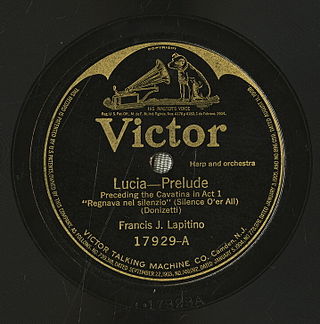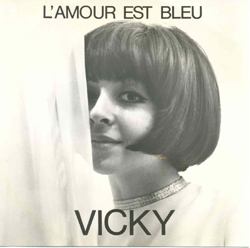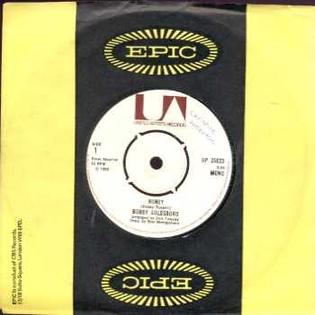
The A-side and B-side are the two sides of phonograph records and cassettes, and the terms have often been printed on the labels of two-sided music recordings. The A-side usually features a recording that its artist, producer, or record company intends to be the initial focus of promotional efforts and radio airplay, with the aim of it becoming a hit record. The B-side is a secondary recording that typically receives less attention, although some B-sides have been as successful as, or more so than, their A-sides.
The Irish Recorded Music Association (IRMA) is a non-profit association set up in 1999 to promote certain interests of the music industry in Ireland. It is particularly active in addressing copyright issues, and it compiles the official music charts for Ireland.

"Love Child" is a 1968 song released by the Motown label for Diana Ross & the Supremes. The second single and title track from their album Love Child, it became the Supremes' 11th number-one single in the United States, where it sold 500,000 copies in its first week and 2 million copies by year's end.

"Those Were the Days" is a song composed by Boris Fomin (1900–1948) but credited to Gene Raskin, who put a new English lyric to Fomin's Russian romance song "Dorogoi dlinnoyu", with words by the poet Konstantin Podrevsky. It deals with reminiscence upon youth and romantic idealism. It also deals with tavern activities, which include drinking, singing and dancing.
The Irish Singles Chart is the Republic of Ireland's music industry standard singles popularity chart issued weekly by the Irish Recorded Music Association (IRMA) and compiled on their behalf by the Official Charts Company. Chart rankings are based on sales, which are compiled through over-the-counter retail data captured electronically each day from retailers' EPOS systems. All major record shops, digital retailers and streaming services contribute to the chart, accounting for over 95% of the market. A new chart is compiled and released to the public by the Irish Recorded Music Association on Friday at noon. Each chart is dated with the "week-ending" date of the previous Thursday. The singles chart was first published on 1 October 1962, and covered the top ten singles of the previous week by record label shipments.

"L'amour est bleu" is a song recorded by Greek singer Vicky Leandros with music composed by André Popp and French lyrics written by Pierre Cour. It represented Luxembourg in the Eurovision Song Contest 1967 held in Vienna, placing fourth.

"Honey", also known as "Honey (I Miss You)", is a song written by Bobby Russell. He first produced it with former Kingston Trio member Bob Shane, who was the first to release the song. It was then given to American singer Bobby Goldsboro, who recorded it for his 1968 album of the same name, originally titled Pledge of Love. Goldsboro's version was a hit, reaching No. 1 in several countries.
"Somos Novios" is a song first recorded by Mexican songwriter Armando Manzanero in 1968. Perry Como recorded an English version of "Somos Novios" with original English lyrics titled "It's Impossible", which was a top 10 hit in the US and the UK.

"I'll Never Fall in Love Again" is a popular song by composer Burt Bacharach and lyricist Hal David that was written for the 1968 musical Promises, Promises. Several recordings of the song were released in 1969; the most popular versions were by Dionne Warwick, who took it to number 6 on Billboard magazine's Hot 100 and spent three weeks topping the magazine's list of the most popular Easy Listening songs, and Bobbie Gentry, who topped the UK chart with her recording and also peaked at number 1 in Australia and Ireland, number 3 in South Africa and number 5 in Norway.
"Lily the Pink" is a 1968 song released by the UK comedy group The Scaffold, which reached No. 1 in the UK Singles Chart. It is a modernisation of an older folk song titled "The Ballad of Lydia Pinkham". The lyrics celebrate the "medicinal compound" invented by Lily the Pink, and humorously chronicle the "efficacious" cures it has brought about, such as inducing morbid obesity to cure a weak appetite, or bringing about a sex change as a remedy for freckles.

"Young Girl" is a RIAA million-selling Gold-certified single that was written, composed, and produced by Jerry Fuller and performed by Gary Puckett & The Union Gap with instrumental backing by members of "The Wrecking Crew". It was released in 1968.
"Am I That Easy to Forget" is a popular song written by country music singer Country Johnny Mathis who later sold the publishing rights to W.S. Stevenson and published in 1958. Belew recorded his song in Nashville on December 17, 1958, and released the single in March 1959, when it reached number nine on the U.S. country music chart. Other country music artists who have recorded cover versions of the song include Skeeter Davis, Ernest Tubb (1960), Jerry Wallace (1962), Gene Vincent (1966), George Jones (1967), Patti Page (1968), Ann-Margret & Lee Hazlewood (1969), Jim Reeves and Prairie Oyster (1991).

"Love of the Common People" is a song written by John Hurley and Ronnie Wilkins, eventually released in 1970 on John Hurley's album John Hurley Sings about People, but first sung in January 1967 by the Four Preps. The Four Preps' recording was not a hit, but, later in 1967, the Everly Brothers and Wayne Newton would each issue their versions of the song, both of which "bubbled under" in the US charts; Newton's version peaked at No. 106, the Everlys' at No. 114. However, the Everly Brothers' recording was a major hit in Canada, peaking at No. 4. In 1968, Irish artist Joe Dolan with backing group the Drifters recorded a version which hit the top 10 on the Irish Singles Chart, but did not chart elsewhere.
"A Thing Called Love" is a song written and originally recorded by Jerry Reed in 1968. This song has been recorded by many artists, including Jimmy Dean, Elvis Presley, Glen Campbell, and Dave Dudley. In 1971, the song was recorded by Johnny Cash and it became a No. 1 country hit in Canada. The record was Cash's biggest hit in Europe, charting in Ireland, the United Kingdom, and the Netherlands. Presley's version features The Imperials on backing vocals and is an uncredited duet with their bass singer Armond Morales; it was also recorded in 1971 and was released on his third and final gospel album, He Touched Me in 1972.







